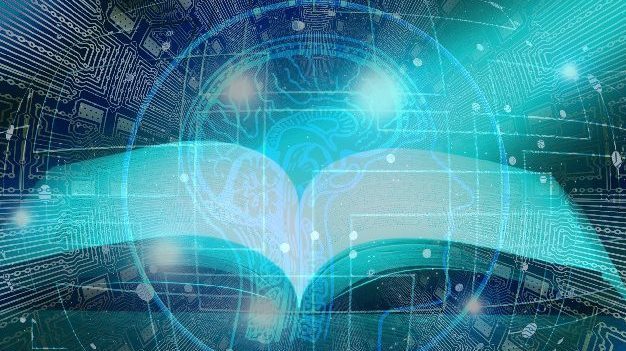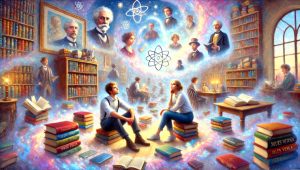Lifelong learning or constant learning is a broad concept bringing together everything about learning, at both formal and informal levels. It has inspired educators to create different lifelong learning models and frameworks to attain socio-political visions of socially sustainable development.
The lifelong learning concept has various definitions across disciplines. Many authors consider this concept a long-term or lifetime solution to our lacking society. Educators and scholars use terms like constant learning, continuous learning, and ongoing education interchangeably.
Lifelong Learning as a Strategic Mindset
Lifelong learning is also a characteristic we commonly share with all living organisms on Earth. Needless to say, learning is a lifelong process that has intrinsic value for our personal and professional growth journey. Adaptation is a survival necessity of a living being, and lifelong learning is part of this function, biologically and socially.
Learning new things constantly with ease can be a long-term strategic approach. That is why learning how to learn is a skill that can secure our professional future and create a proactive attitude towards life. Currently, tech jobs have dropped by 40%, and new roles like AI Engineers and researchers have emerged. AI skills like deep learning, artificial neural networks, machine learning, and computer vision are trending globally.
learning can facilitate innovation
The lifelong learning concept is researched by AI professionals in their effort to create advanced AI that can mimic us. AI researchers rely on neural networks in their work, and they are inspired by human behaviours to make AI systems learn. Also, they are trying to make computer neurons more complex so they’re more like neurons in living organisms.
Also, in an organisational context, jobs are at risk of becoming automated in the near future. A continuous learning mindset can facilitate innovation and help people adapt to changes more easily. Constantly learning about trends and immersing in professional expertise offers valuable exposure to practical knowledge. Learning methods available are books, studies, articles, courses, MOOCS, conferences, seminars, trainings and workshops.
Constant learning, Adaptation to changes and employability
In his book “The Fifth Discipline: The Art and Practice of the Learning” Peter Senge considers learning organisations as a way for us to fee our aspirations and continually see the whole, where “new and expansive patterns of thinking are nurtured, where collective aspiration is set free, and where people are continually learning to see the whole together”.
Just like any other living organism that adapts to environmental changes, we need to constantly learn new things. This can deepen our understanding and enhance our skill sets to face our challenging circumstances. Constant learning can be a useful mindset that helps us remain relevant and up-to-date.
A research shows that lifelong learning can bring significant returns in both employability and hiring prospects. Data shows that under social and economic pressures, lifelong learning has a protective effect on people, helping them to choose better career pathways in the labour market.
acquisition of knowledge and skills, and agility
Agility refers to our ability to provide resilient and timely answers to changing circumstances while maintaining a flexible attitude. It’s also a common trait for people able to understand the necessity of constant learning, so they can be ahead of their time in this ever-changing world. Both of these concepts involve a permanent acquisition of knowledge and skills during our existence.
So, lifelong learners are also agile, as the skills and knowledge they acquire enable them to handle unpredictable challenges and take advantage of future opportunities. Lifelong learning and the agility concept play an important role in the organisational context, contributing to constant adaptability and personal growth.
Soft skills might overtake hard skills
Developing a lifelong learning mindset and growing our skill sets are now a necessity, mainly due to technological advancements like automation and AI. However, even more important than the tech changes is the fact that certain skills have a lifespan. It seems that 51% of employers agree that the average tech skills have a lifespan of 2 years or less.
According to an OECD study, AI has a range of applications that can only be maximised through our creativity and imagination. Scientists argue that by 2030, demand for skills will change, and creativity will play a major role in tech innovation. Imagination and creativity are the realm of humans, not of machines. So, ironically, to adapt to new technology trends, we’ll need to develop even more creativity skills and become more imaginative than AI.
Communication, empathy and personal integrity
Also, by 2030, social and emotional skills and personality traits, such as empathy, efficient communication and respect for others, will be essential for professional development. For early career starters, employability comes not only with hard skills but also with soft skills. An executive’s perceptions research about the most important soft skills showed that integrity and communication were the two skills and personal traits that ranked highest.
Soft skills like problem-solving, critical thinking, decision-making, and efficient communication are gaining more importance in the context of AI development. Because of the difficulty in quantifying them into actions or behaviours, this type of skill is not easy to learn or perfect. It requires personal effort and time to develop through life experiences or on the job.
Empathy is a desirable skill for employers
Lately, empathy has become a popular and desirable skill for employers. There are job descriptions that require empathy in positions that involve leadership or custom care. But, as always, there are confusing and conflicting views on empathy. Some researchers argue that empathy is a rare talent or personality trait, while others say it’s a skill and can be learnt.
A study about empathy shows that only 10% of our empathy is genetic, and up to 90% comes from our upbringing and environment. It underlines that neurobiological research has changed the perception of empathy as a soft skill to a neurobiologically based competency.
So, jobs that require social and emotional skills like creativity, empathy and social interactions are unlikely to be replaced by AI. Soft skills can be improved or polished through coaching, training, or mentoring. However, people who already possess an empathy genetic trait are more fortunate in this regard.
Lifelong learning is a powerful mindset we can develop and adopt, even if we can’t always succeed in all our endeavours, precisely because we are only humans. Constantly learning is a lifetime pathway helping us reach our professional and personal goals.




